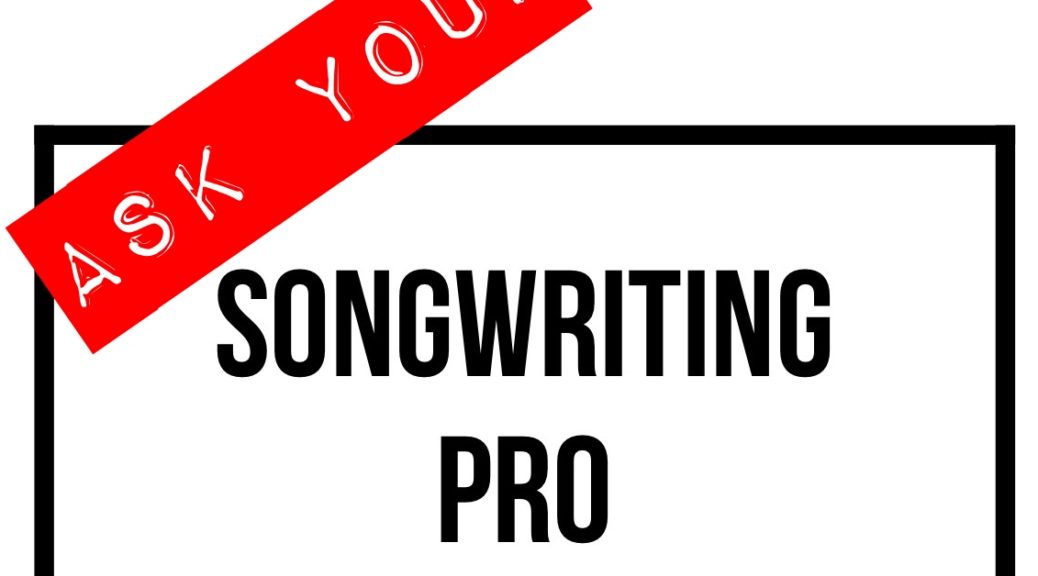QUESTION: I write lyric and melody, but I don’t play an instrument. If I get someone to put the guitar or piano to my song, should they get songwriting credit?
This question came up during a recent songwriter workshop, and I thought it would be a good one to address here. Do you wonder about this, too? If someone puts the chords to your song, should they get songwriting credit?
Let’s dive in.
________________________________
To BE a pro, you need to THINK like a pro, and this FREE ebook will help transform your thinking, your songwriting, and your success. Get it today!
_________________________________
The short answer is “no, probably not.” The longer answer is a little more nuanced.
A song is melody and lyric.
If you wrote both of those things, you wrote a complete song. Now, maybe you aren’t an instrumentalist, and you need someone to play the song for your recording. Maybe you don’t even know the chords, so they have to figure them out.
Figuring out the chords for your song is NOT co-writing the song.
The two of you can work out whatever deal you want, but in my experience in the music business, figuring out chords or playing on the recording does not equal a cowriting situation. It’s either a favor for a friend or a one-time paid job. It does not entitle the musician to own part of the song.
What about track-writers?
This is where it may get a little tricky. In the pop world, some producers will provide a musical track with no melody or lyric. It’s just drums, guitar, whatever. And that track person/producer will not add any melody or lyric to the song. They give their track to what is known as a “top-liner.” This top-liner writes the melody and lyric.
In this case, the producer and top-liner usually share songwriting credit. However, if the top-liner wrote the lyric and melody FIRST, and then gave it to a producer to build a track, they probably wouldn’t share songwriting credit. They’d probably just pay the producer for his or her work.
Bottom line: different genres have different norms, but what ultimately matters is what you and your (potential) cowriter decides is fair.
I hope that helps! If you’d like to ask a pro songwriter your own questions, I have a great opportunity for you. On Tuesday, October 16, I’m hosting a live, online Q&A session with hit songwriter, Chris Lindsey. He’s written for Blake Shelton (“Every Time I Hear That Song”), Lonestar (“Amazed”), Tim McGraw, Keith Urban, Carrie Underwood and more. He also hosts a great podcast for songwriters called “The Pitch List.”
Why don’t you join us for FREE? That’s right, this event is my gift to you. Normally, it’s only free for members of Frettie.com, but not this time. This time, ANYONE can join us. And Chris and I hope you will! CLICK HERE FOR ALL THE DETAILS.
God Bless and Enjoy the Journey,
Brent
Brent Baxter is a hit songwriter with cuts by Alan Jackson, Randy Travis, Lady Antebellum, Joe Nichols, Gord Bamford, Ruthie Collins, Ray Stevens and more. He’s written a top 5 hit in the US, a #1 in Canada, and a top 10 in Texas. His songs appear on 5 industry-certified gold & platinum albums & singles… so far. He also hosts a top-rated songwriting and music business podcast called, “The C.L.I.M.B.” which can be found on iTunes or your favorite podcast app.





I certainly disagree here. If someone added the chords, tempo and rhythms, that is writing part of the song. There is no certain chord that is definite for a certain melody. You can put all sorts of chords onto any melody, but when someone puts a chord structure onto a song that had no chords, and it is agreed on, that is what is needed, and that is co-writing. I wouldn’t want to write with someone thinking that a capella melody is a complete song (including the lyrics and the chords accompaniment) is not part of the song. Baloney. The chords one uses is instrumental to a song. You can put jazz chords into a decent melody and totally change the flavor of the song. Hank Williams Sr. used to caution his band should they add chords “he did not write or authorize” in his songs… and with good reason. It is no longer the song he wrote.
Well, hmm. I really think harmony is an iimportant part of the song. Yes, I do know it is derived from the melodic line but there are many ways a song can be harmonized. I for one wrote everything, but I feel generous when someone helps me write and arrange a song. I think it should be shared.
+1 Robert. Give credit where credit is due. If you can work a 2/3 – 1/3 deal with the chord writer, good for you. But personally I would feel obligated to split the royalties with the co-writer 50/50.
Hi Richard… I’m with you on that issue of normally not wanting to start saying well I should get 70% or something such as that. I think it may lead to hurt feelings and arguments and I certainly wouldn’t want that in a co-write. It should be all positive. I have usually (or maybe always?) gone 50/50.
Using your argument, a song that is written using a 1, 4, 5 pattern in the key of D would be completely cleared for recording by using the same 1, 4, 5 pattern in the key of E. Different Chords but same pattern (with different results)
Well, hmm. I really think harmony is an iimportant part of the song. Yes, I do know it is derived from the melodic line but there are many ways a song can be harmonized. I for one wrote everything, but I feel generous when someone helps me write and arrange a song. I think it should be shared.